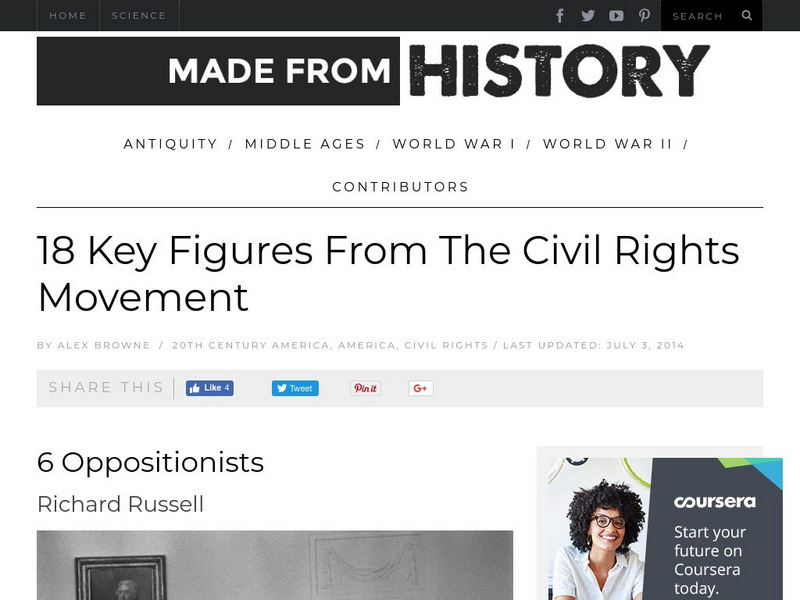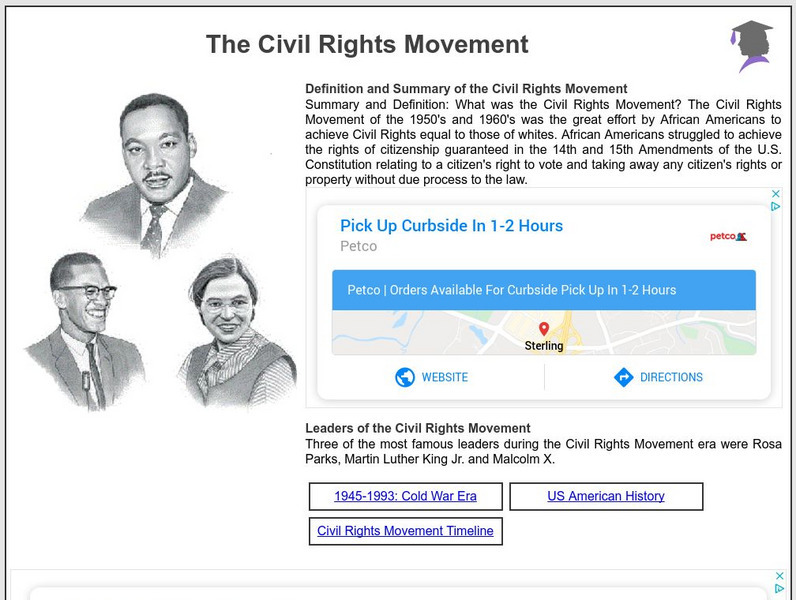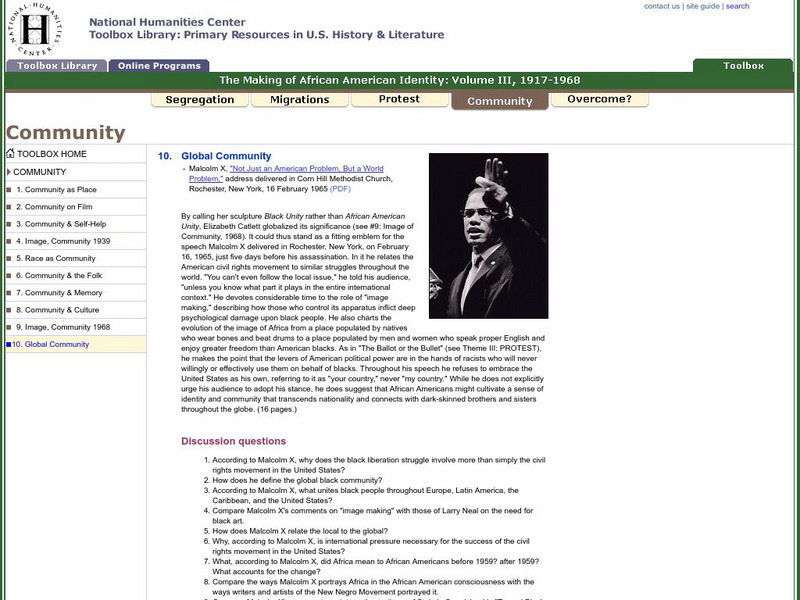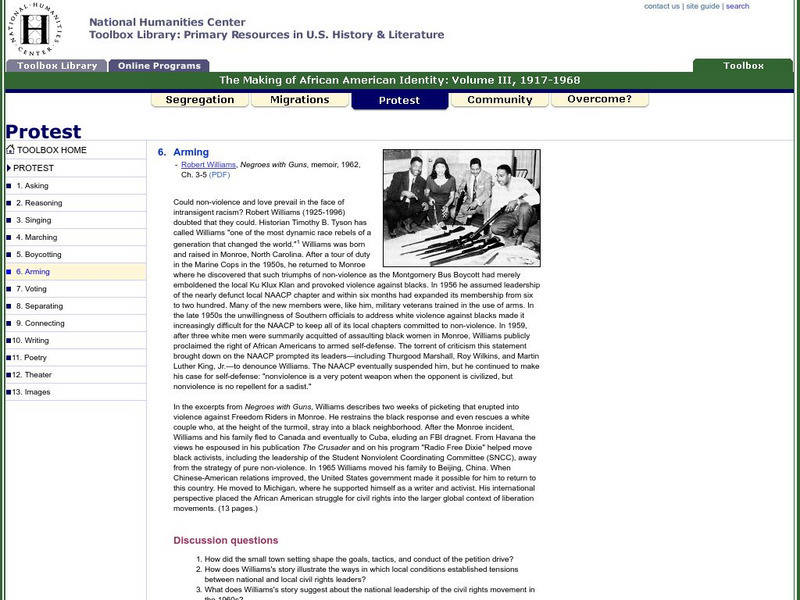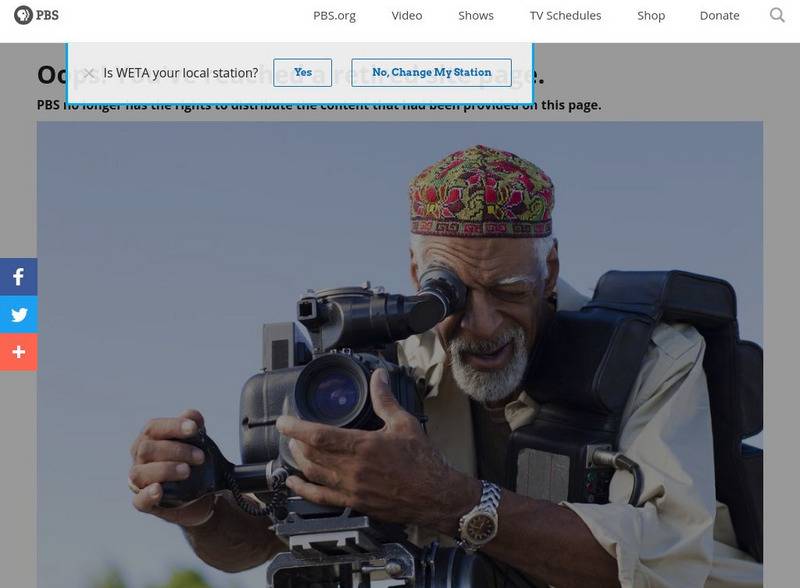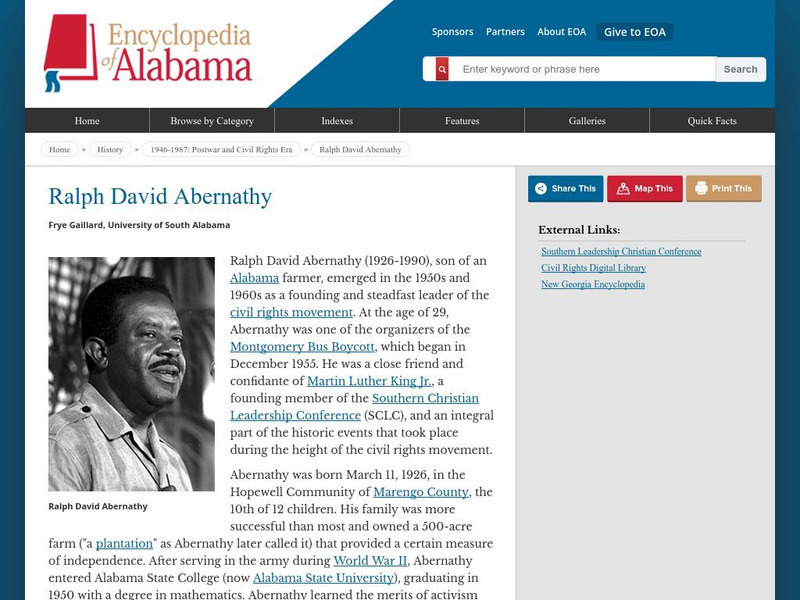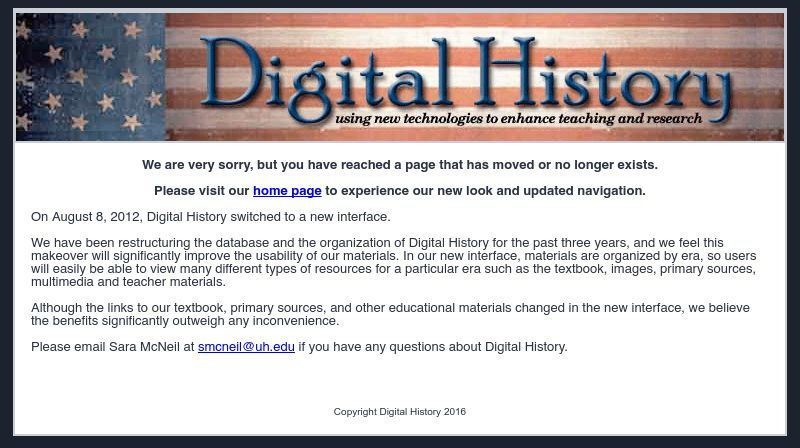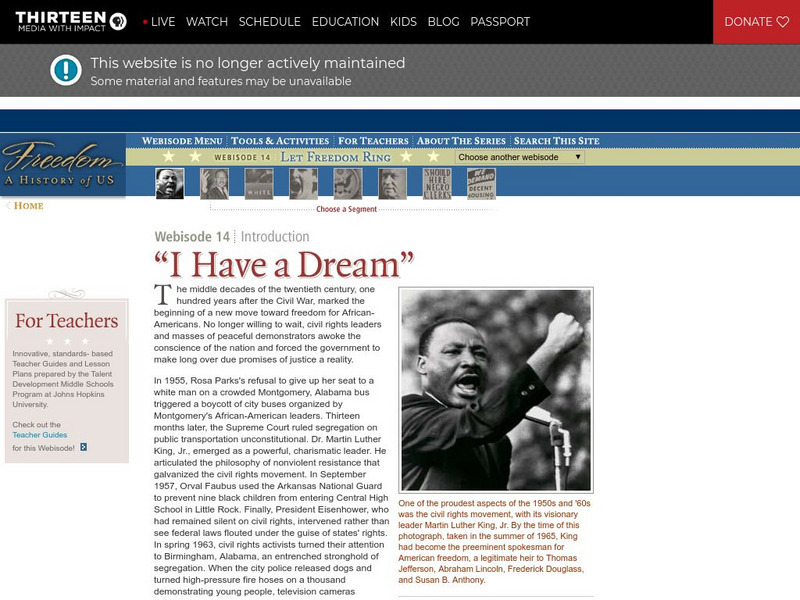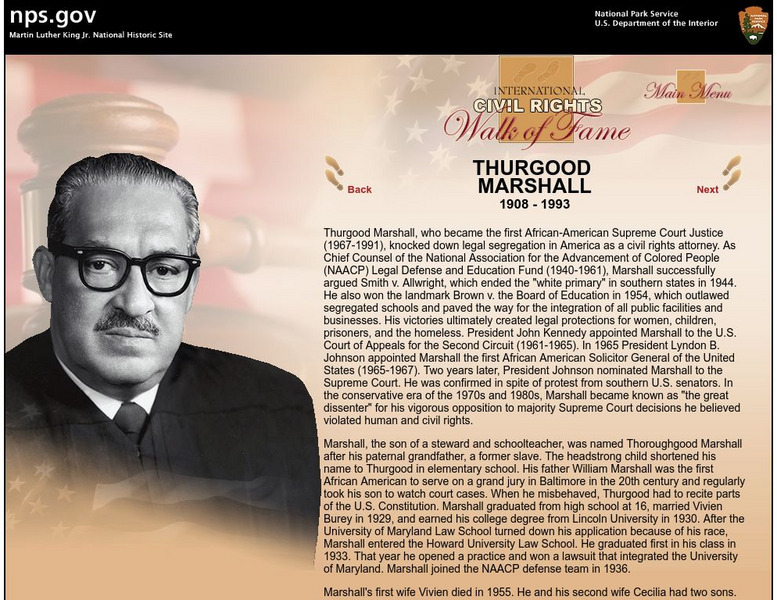Made From Media
Made From History: 18 Key Figures From the Civil Rights Movement
This collection of images showcases people who played pivotal roles in the Civil Rights movement of the 1960s.
Choices Program, Brown University
Choices: Black Lives Matter: Continuing the Civil Rights Movement
Learning module with multi-media resources, including interactive timeline, video, photos and articles, from which students can explore the current Black Lives Matter movement and make connections to activism of the past and the role of...
OpenStax
Open Stax: 1945 1960: African American Struggle for Civil Rights
Examines how Presidents Truman and Eisenhower dealt with the civil rights movement, the steps taken by African Americans to combat discrimination and segregation, and the reaction of white people in the South to the civil rights...
University of Groningen
American History: Outlines: Origins of the Civil Rights Movement
Overview of the beginning of the Civil Rights Movement in post World War II America.
Siteseen
Siteseen: American Historama: Civil Rights Movement
Article details important people, places, and events in the Civil Rights Movement during the 1950s and 1960s.
Annenberg Foundation
Annenberg Learner: Democracy in America: Civil Rights: Demanding Equality
This unit embraces those individuals who have brought change to the United States in both social and political equality through a Video on Demand, activities, and other enlightening resources.
PBS
Pbs Learning Media: Civil Rights Activist, Fannie Lou Hamer
A profile of the life and leadership of Fannie Lou Hamer, a civil rights activist best known for her stirring testimony at the 1964 Democratic National Convention.
TED Talks
Ted: Ted Ed: Martin Luther King, Jr.: "I Have a Dream"
On August 28, 1963, Dr. Martin Luther King, Jr. delivered a speech to hundreds of thousands of Americans at what is known as the March on Washington. This now-famous speech was both an apex and catalyst for the Civil Rights Movement in...
National Humanities Center
National Humanities Center: Toolbox Library: Global Community, Making of African American Identity: V. 3
On February 16, 1965, in Rochester, New York, Malcolm X delivered a speech that placed African American in a global black community. Just five days before his assassination, he relates the American civil rights movement to similar...
Virginia Historical Society
Virginia Historical Society: Conclusion: Did the Civil War End at Appomattox?
While the American Civil War officially ended at the Battle of Appomattox, Confederate sensibilities ran deep and it was not until the Civil Rights Movement in the 1950s and 1960s that blacks were able to fully assert their equality....
Other
People's World: The Chicago Freedom Movement: Summer of 1966
An informative and inspiring article about the African American struggle for civil rights in Chicago, 1966. The authors offer a first-hand account of protests against unfair housing and discrimination and the subsequent changes made.
National Humanities Center
National Humanities Center: Toolbox Library: Arming, Making of African American Identity: V. 3
This resource offers a memoir that examines the role of armed self-defense in the civil rights movement. An excerpt from the text "Negroes with Guns", by Robert Williams is made available here, describing his approach towards civil...
Annenberg Foundation
Annenberg Learner: American Passages: Becoming Visible: James Baldwin
James Baldwin is presented in this biography as a great African American contributor to the literary world during the civil rights movement. See "James Baldwin Activities" for more information.
PBS
Pbs: American g.i. Forum: Hector P. Garcia
Part of the website associated with the PBS series called "The Border." This article discusses the role of Hector Garcia in the Hispanic civil rights movement after World War II.
Center For Civic Education
Center for Civic Education: Black History Month
A collection of six lessons for Grades 5 and up for Black History Month. The lesson plans explore the use of nonviolence in history, particularly with respect to the civil rights movement and African American history.
Other
Ar Net: Hispanic Americans, an Under Represented Group
An excellent description of the problems facing the involvement of Hispanic-Americans in American politics. The essay covers 1948 to 1996, with a good discussion of the civil rights era.
Library of Congress
Loc: African American Odyssey: The Civil Rights Era (Part 1)
This exhibit on the African American culture and history ranges from the 1948 desegregation of the military to Hank Aaron's breaking of Babe Ruth's homerun record in 1974. Includes images of historical photographs and documents.
Alabama Humanities Foundation
Encyclopedia of Alabama: Ralph David Abernathy
This brief biography of Ralph Abernathy highlights his contributions to the Civil Rights Movements.
National Humanities Center
National Humanities Center: Toolbox Library: Attacking Stereotypes, Making of African American Identity: V. 3
Two images that express the growing militancy of the civil rights movement in the 1960s. This article explains how Joe Overstreet (1934-) and Betye Saar (1929-) went head to head with the formidable Aunt Jemima and with wit and irony...
Other
Civil Rights Movement 1955 1965: Mississippi & Freedom Summer
Take a look at Mississippi in the early 1960s to understand why the focus of African American voter registration targeted that state. Read about the organization and implementation of the Mississippi Summer Project in 1964. See also the...
Digital History
Digital History: Simple Justice
Follow the civil rights quest for integrated schools from the beginning in 1849 through the 1954 Supreme Court decision in Brown v. the Topeka Board of Education and the struggle that ensued for decades following in the most reluctant...
PBS
Wnet: Thirteen: Freedom: A History of Us: Webisode 14: Let Freedom Ring
Series episode covers the civil rights movement and the struggle for equality in post-World War II America.
PBS
Pbs: God in America: The Black Church
A good look at the role of the church and religion in the history of African Americans. Find out the church's importance in the abolition movement and the civil rights movement.
Curated OER
National Park Service: International Civil Rights Walk of Fame: Thurgood Marshall
This is an informative biography discussing the role Thurgood Marshall had in the Civil Rights Movement, particularly as a U.S. Supreme Court Justice.
